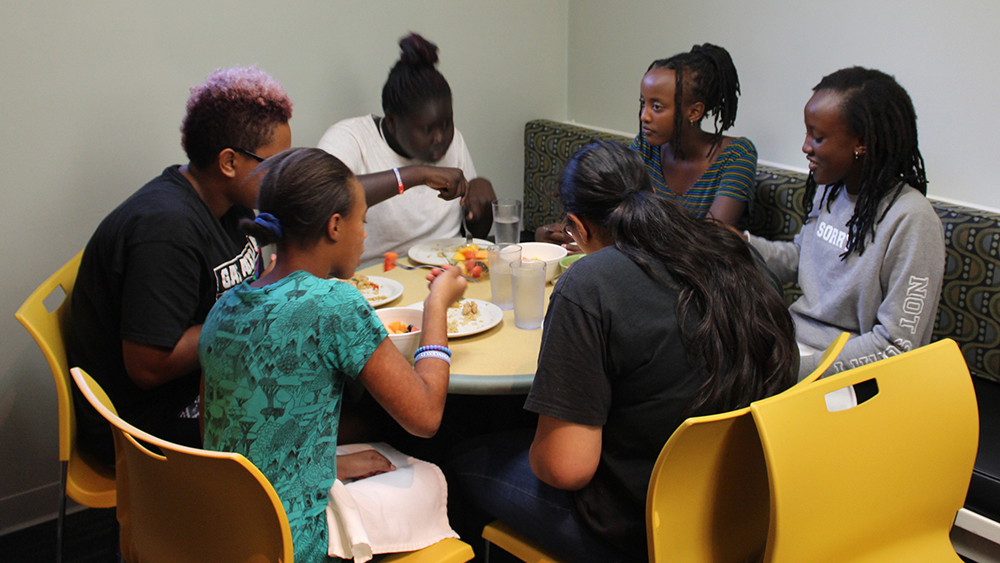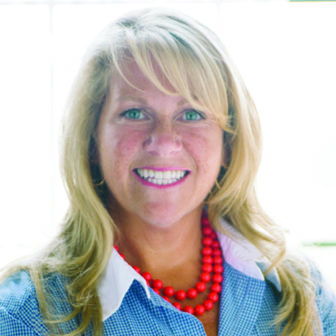
My Place Teen Center
My Place Teen Center in Westbrook, Maine, offers kids ages 10 to 18 a friendly and nurturing environment after school and in the summer. The center serves a family-style meal each weekday, prepared partly by kids in the center’s culinary program.
Inside the red doors of a former church in Westbrook, Maine, more than 40 kids are eating dinner.
It’s Friday evening and they’re dining on beef stew, spaghetti and meatballs, squash soup and more.
It’s the My Place Teen Center, a free after-school program that’s a safe haven in the Portland suburb for kids, many of whom deal with poverty, parental incarceration, substance abuse and other challenges.

My Place Teen Center
Donna Dwyer
Some of the kids helped prepare the meal. They’re taking part in a chef-led program at the center that teaches culinary skills, and more importantly, connects them with adults who can provide a safe, supporting relationship.
One of the middle school students in the restaurant program is known as Christine (not her real name). Two years ago, she had a credible plan to commit suicide, said Donna Dwyer, president and CEO of My Place. She was often bullied and lacked confidence in herself.
“We’ve been working with her for four years,” Dwyer said. “We’ve seen her blossom.”
While the restaurant program has many goals, its No. 1 purpose is providing connection with mentoring adults. That one strong adult relationship is extremely powerful, a key element leading to a young person’s resilience, Dwyer said.
My Place started in 1998 and operates year round. It offers academic assistance, leadership training and a variety of programming.
“Ten years ago we were thinking we needed to add a meal component,” Dwyer said. “If we don’t feed them, [in many cases] nobody else is going to.”
After beginning to serve weekday dinners, the staff realized a culinary program could teach valuable job skills. They also saw the opportunity to nurture kids’ emotional health and well-being via this small group instruction.
“We know that food is a good hook, a good lure,” Dwyer said. Working together to prepare food can give vulnerable youth a sense of belonging and purpose when it takes place in a warm, encouraging but also demanding environment, she said.
In January Chef Christian Kryger left his job as chef de cuisine at the James Beard award-winning Fore Street restaurant in Portland, Maine, to run the teen center culinary program.
The 10-week program starts with restaurant safety and cleanliness instruction. Kids learn kitchen and dining room tasks and how to follow recipes precisely. Kryger takes them on grocery shopping trips (which also teach them about money) as well as trips to local restaurants, where they observe both “front of the house” and “back of the house” operations. They learn to fill out job applications and time cards and prepare for interviews.
The teen center seeks to nurture grit, compassion, perseverance, accountability and curiosity, Dwyer said. Many of the kids have faced a lot of hardship. “For most of them, there’s a sense of depletion,” she said.
The restaurant program is a conduit to social and emotional learning.
“It could make a difference in a kid’s life,” she said.































